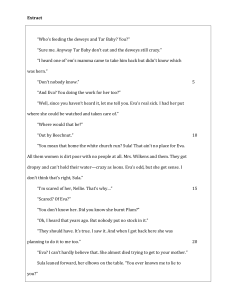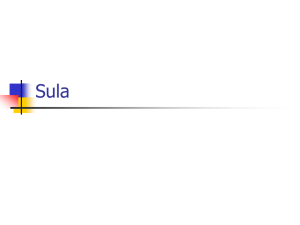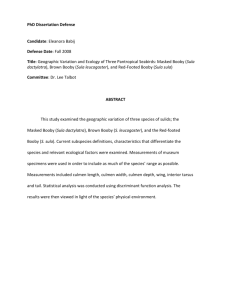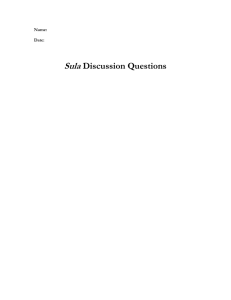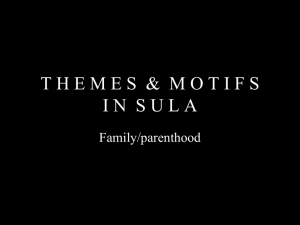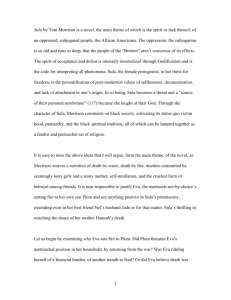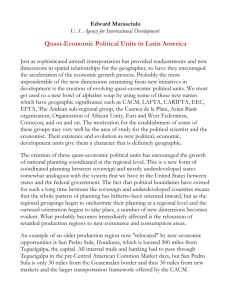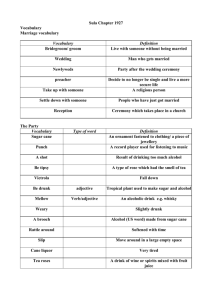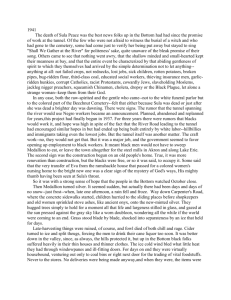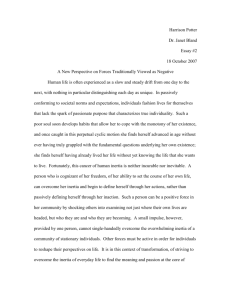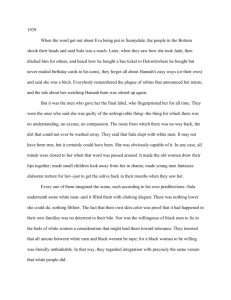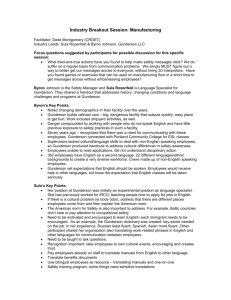Good vs Evil Sula Mat Victor - DJ
advertisement
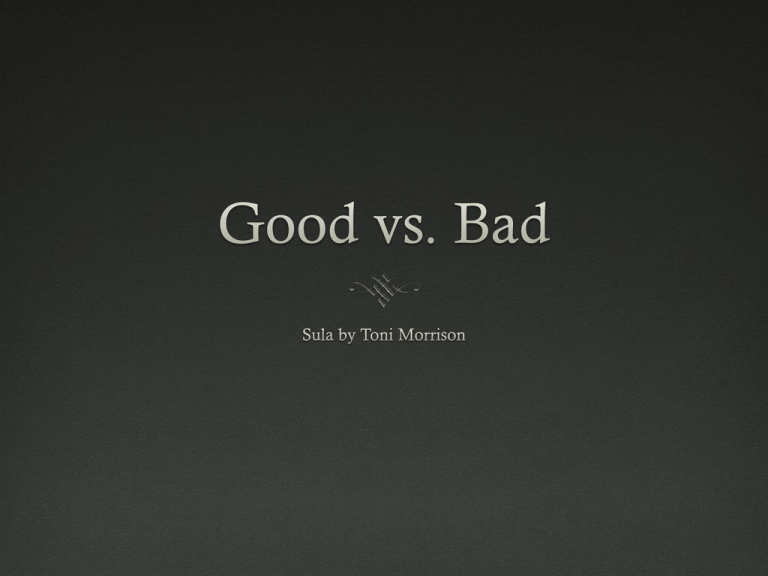
Introduction Good vs. bad or right vs. wrong is a very important theme The conventional idea of good and bad is altered in Sula This alteration derives from the society This difference between Nel and Sula is what caused this friendship Different environments This is shown in the different environments they live in • Pg. 29 Sula and Nel are portrayed through their households "household of throbbing disorder constantly awry with things, people, voices and the slamming of doors" "surrounded by the high silence of her mother's incredibly orderly house, feeling the neatness pointing at her back" 1939 Sula sleeps with Jude, causing the abandonment of Nel We can argue that this event is a direct result of Hannah’s life Pg. 42 Sula herself knows that the townspeople "despised her and ... framed their hatred as disgust for the easy way she lay with men" The ambuiguity Nel judges Sula “You laying there in that bed without a dime or a friend to your name having done all the dirt you did in this town and you still expect folks to love you?” pg. 145 Sula raises the debate “How you know?” Sula asked. “Know what?” Nel still wouldn’t loot at her. “About who was good. How you know it was you?” “what you mean?” “I mean maybe it wasn’t you. Maybe it was me.” pg. 146 Conclusion " Without her "evil" influence to rally them together, the moral righteousness Sula inspired in the townspeople begins to crumble.” Do we (society) need evil to remind us of what are good actions? Different views Eva’s missing leg has many explanations, all of which include providing for her family If any of these are true, and it was to provide suitable housing and food for her children, then it is all out of altruism Family care Eva sets Plum alight “lit it and threw it onto the bed where the kerosene-soaked Plum lay in snug delight.” – P.47 Can be seen as a purifying action “Some kind of baptism, some kind of blessing, he thought.” – P.47 Conclusion Whether doing harm to yourself for the benefit of your family is right or wrong, this has many different views, none of which are even justified in the text. Eva kills her own son, Plum, because she does not want him to fall deeper into heroin addiction, and end up taking his own life – Eva does not feel it is quite right, but she seems to feel as if she must do it. With it being seen as a purifying action in the text, it can be hard to say whether her actions are rightly justified.
